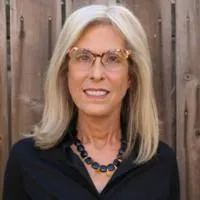The Social Communication Blog
By Linda Boverman

Boost Happiness the Scientific Way

Jennifer Senior in her Ted Talk, For Parents, Happiness is a very Tall Bar, says we cannot make our children happy. I agree.
BUT…
we can use language that expands rather than diminishes. We can teach in a way that develops the ability to be nurturing and positive, and we can model.
The following are ten scientifically proven practices, many of which can be done with barely a thought and that speak to me. Some of them may already ring true for you. Others you may want to adapt. Still others can help us simply by our knowledge that they are happiness boosters.
I propose picking one or two practices and focing on those. Once you have made those a habit, move on gradually to the others.
10 SCIENTIFICALLY SUPPORTED PRACTICES THAT BOOST HAPPINESS

COMPASSION
Recognizing someone else’s suffering and supporting them creates a shift in their brain that associates with well-being and resiliency.

FORGIVENESS
If you want joy you can’t hold onto the past. All it takes is a decision backed up with passion and intention.

GRATITUDE
Expressing three gratitudes a day for something about yourself, another, or your life will help put you in touch with your heart and sense of well-being.

SENSE OF PURPOSE
Whether it is recycling, how we talk to our children, or how we lead our lives, when we are immersed in a goal or a purpose we feel good.
A sense of purpose is available to all of us, helps us recognize our value, and serves to make the world a better place.

PRACTICE
“Practice doesn’t make you perfect, it helps you stop thinking you have to be perfect.”
Sir Ken Robinson
Happiness does not happen automatically. It takes consistent, repetititve attention, thought, and practice. It is a profound act of creativity.

MEDITATION
“Just a little break can help us manage our emotions.”
Matthew Richard
Sharon Anchor’s study of folks meditating 2 minutes a day for 21 days revealed that the brain had changed and was working more optimistically and more successfully.

CONNECTIONS
A friend of mine met John Kennedy on the Santa Monica Beach before Kennedy was president. My friend remembers the meeting to this day. He felt like there was nothing more important to Kennedy than connecting with him. It was often said that Kennedy could connect with almost anyone, almost immediately.
Typically, connecting takes time and practice–face-t0-face practice.
We all need connection. Our children crave it. It makes them thrive, grow, and learn. We enjoy them more–and ourselves more–when we allow and promote it.

PLAY
We need to play when we are alone, with other adults, and with our children. With our children, we need to build it into our daily lives like brushing our teeth.

MENTAL IMAGERY
What we visualize activates different centers in our brains. If we consistently visualize negative situations, difficulties, and problems, we will become negative, alienate others, miss opportunities and loss faith in ourselves.
If we consistently visualize positive situations, success, and the ability to problem solve, we will experience more success, confidence, and happiness.

DON’T BELIEVE ALL YOUR THOUGHTS
Simply put:
Our brains lie to us.
To stop believing these lies we need to talk to ourselves and others differently.
Changing the words we say to ourself and others, day in and day out, changes our habits, our happiness level and our brains. Sometimes we’ll need to talk to our brains — directly, emphatically, and clearly.
“Brain, you are lying to me. All those negatives thoughts are lies, absolutely unhelpful, and I’m not listening to them.”
I am not an officianado at any of these practices. But I do know the more I practice them the more they become habits, and the happier I am. Remember:
Happiness doesn’t happen automatically, it takes practice.

Dr. Amit Sood’s video, A VERY HAPPY BRAIN , is a playful exploration of the benefits of compassion and gratitude. You can even watch it with your children.
SPOILER ALERT: Feel free to change his “prayer” reference to “intention”, “positive thoughts”, or the word of your choice.
You may also want to browse through My Articles for additional information on the brain, meditation, play, and happiness.
“How we communicate affects our joy of being alive.” – Linda

Copyright 2023 . All rights reserved
lindaboverman@gmail.com
(213) 804-7750

